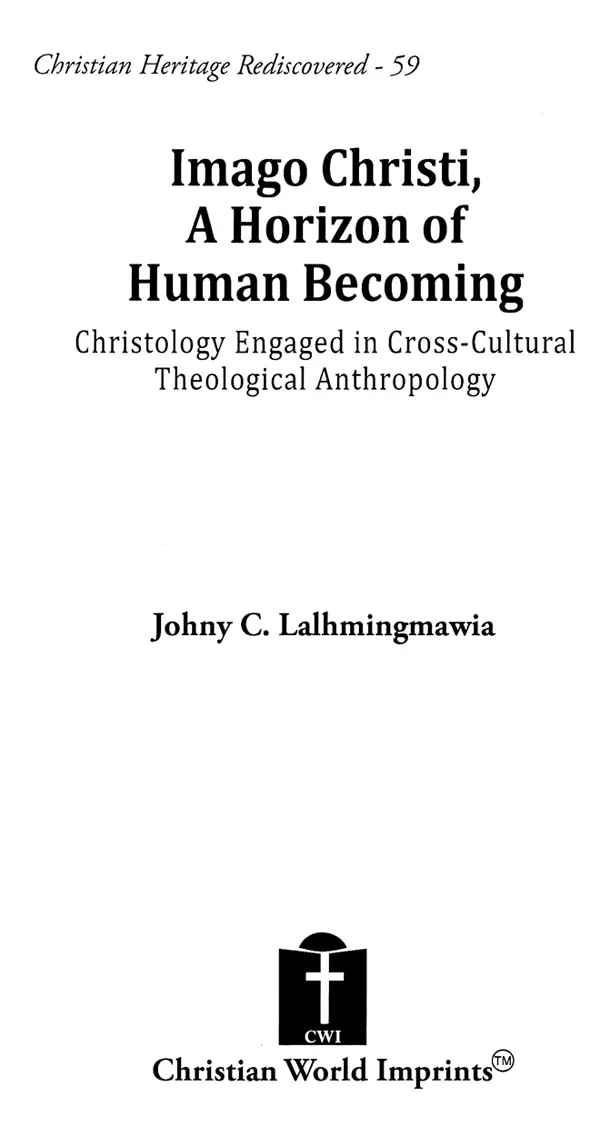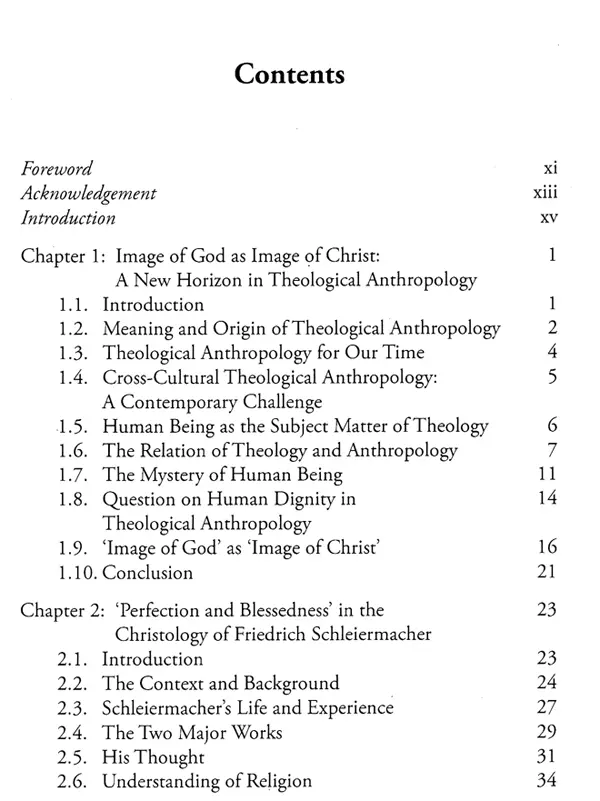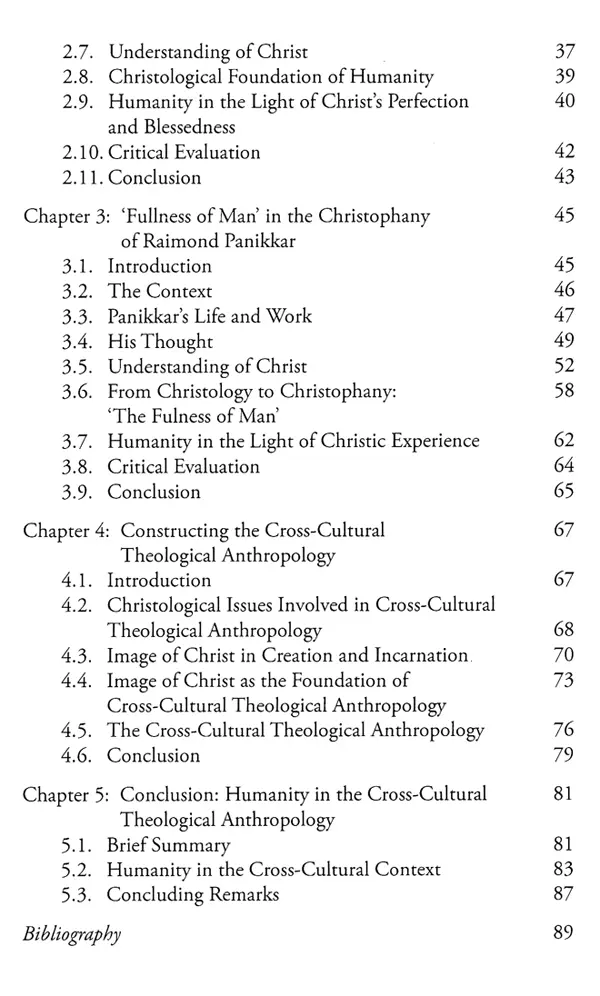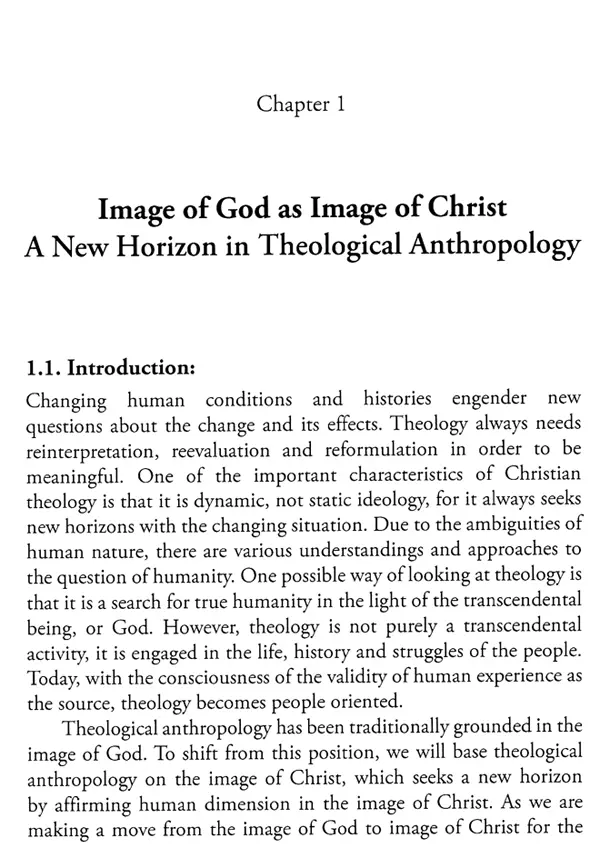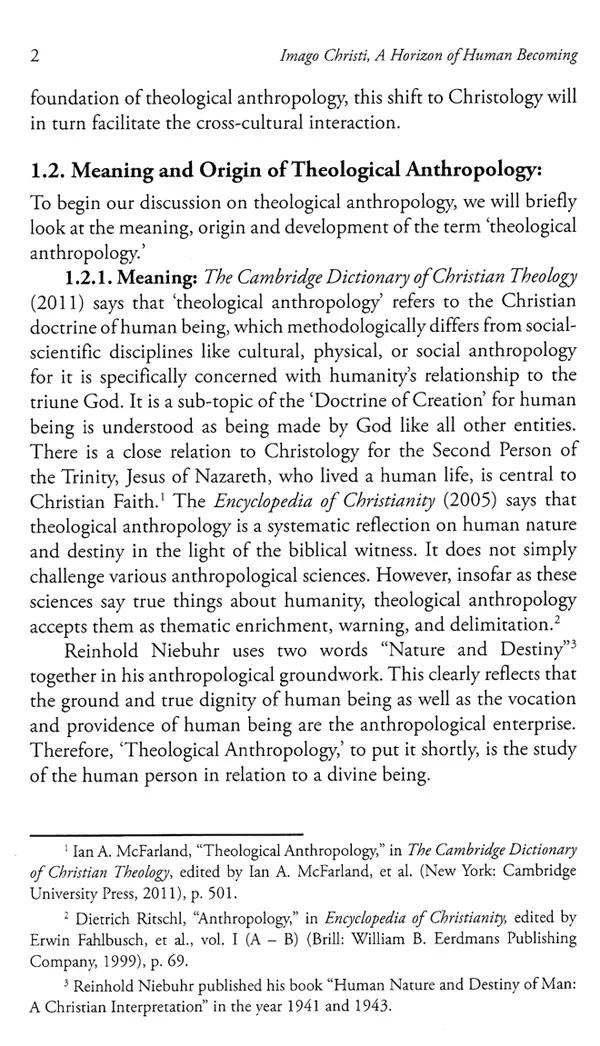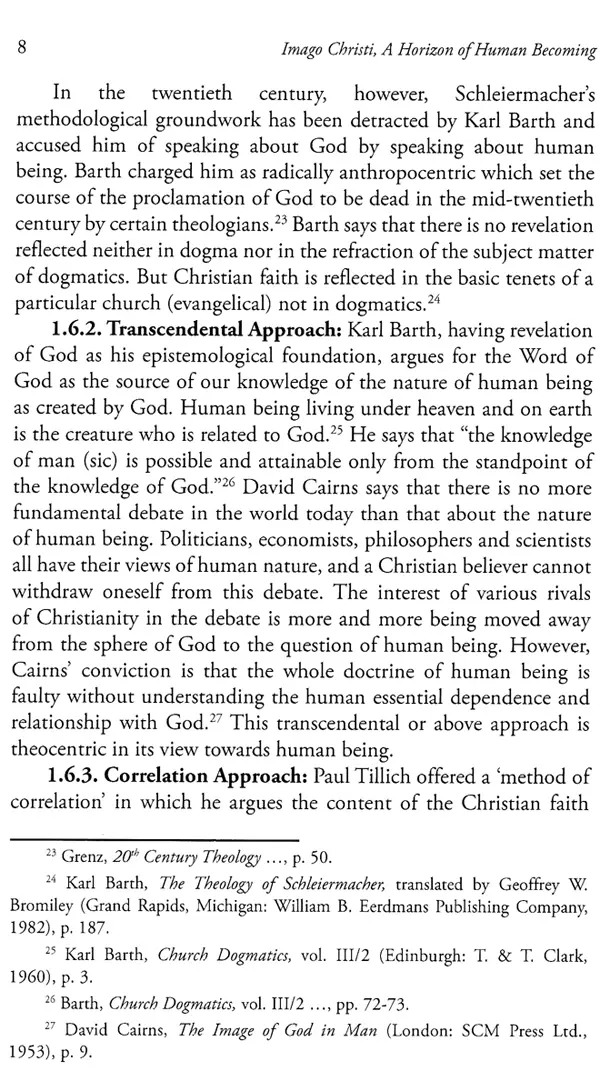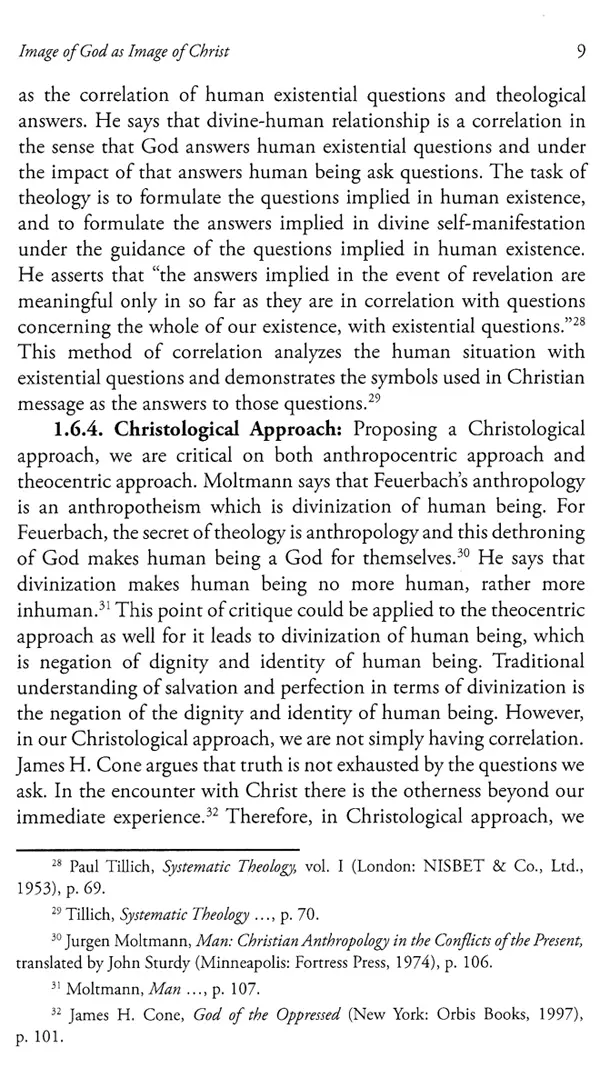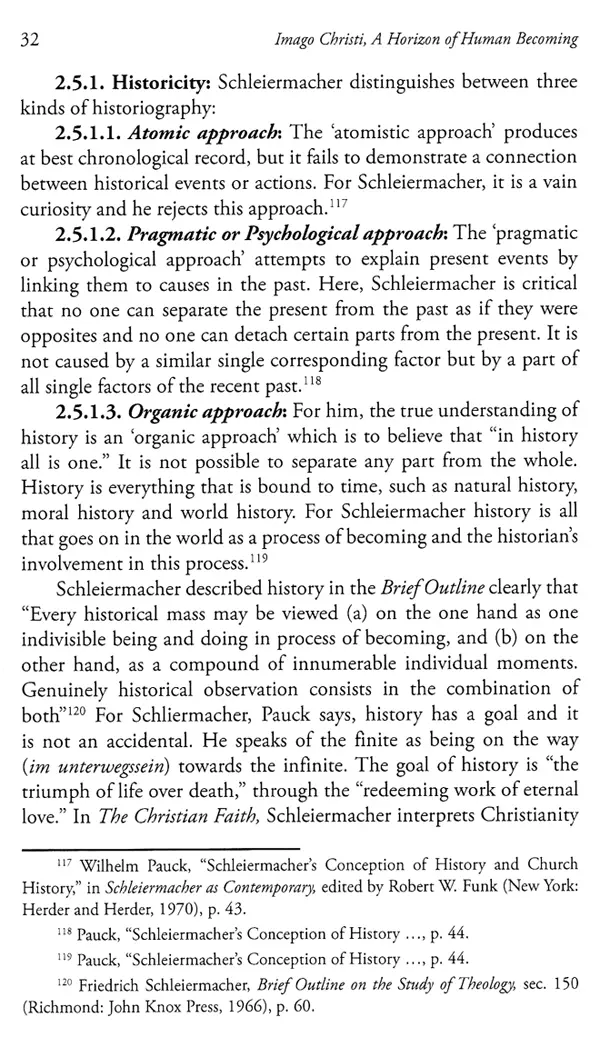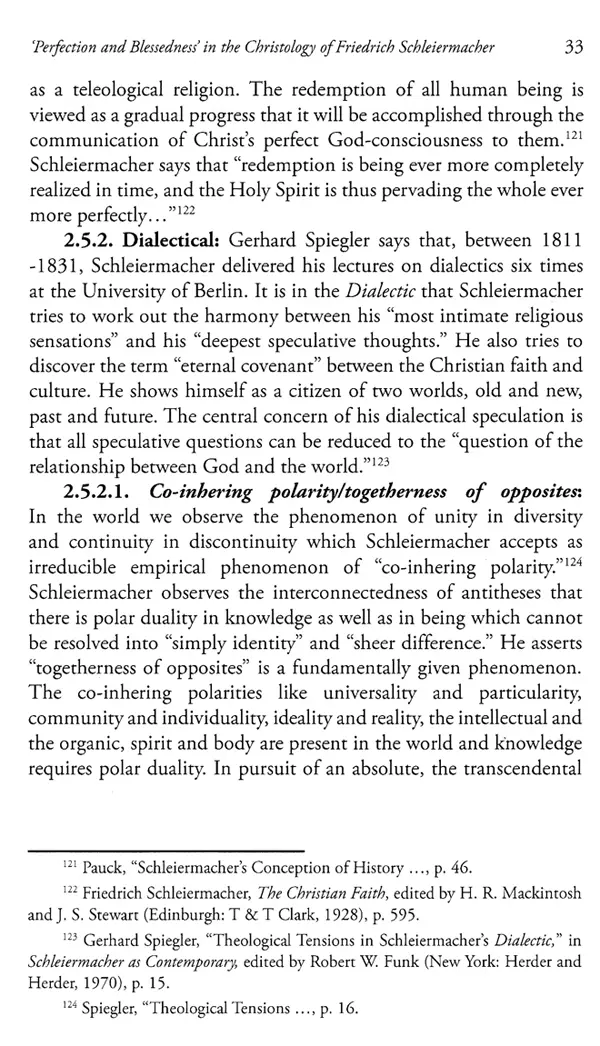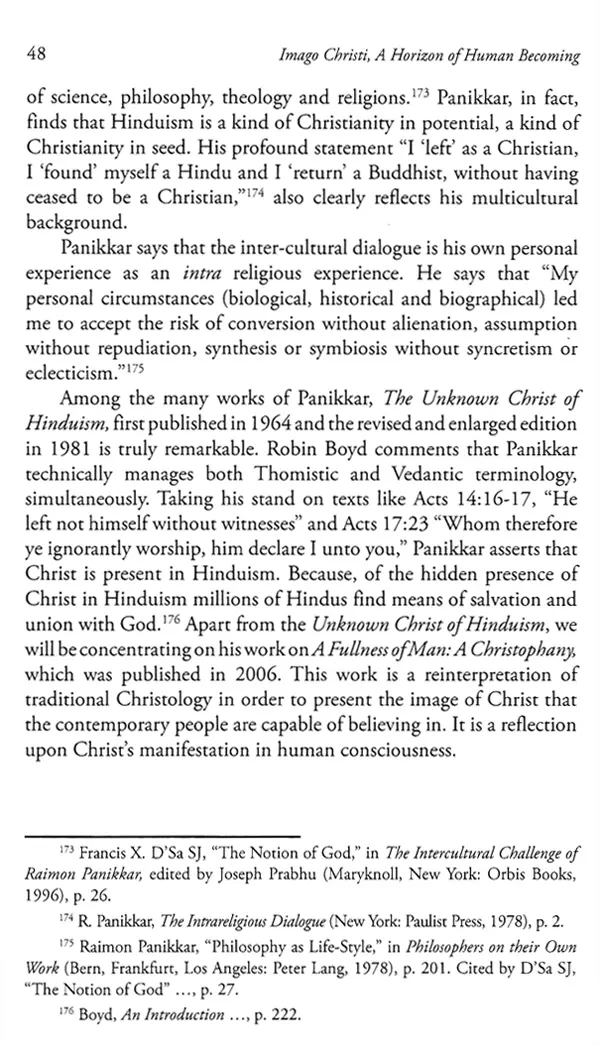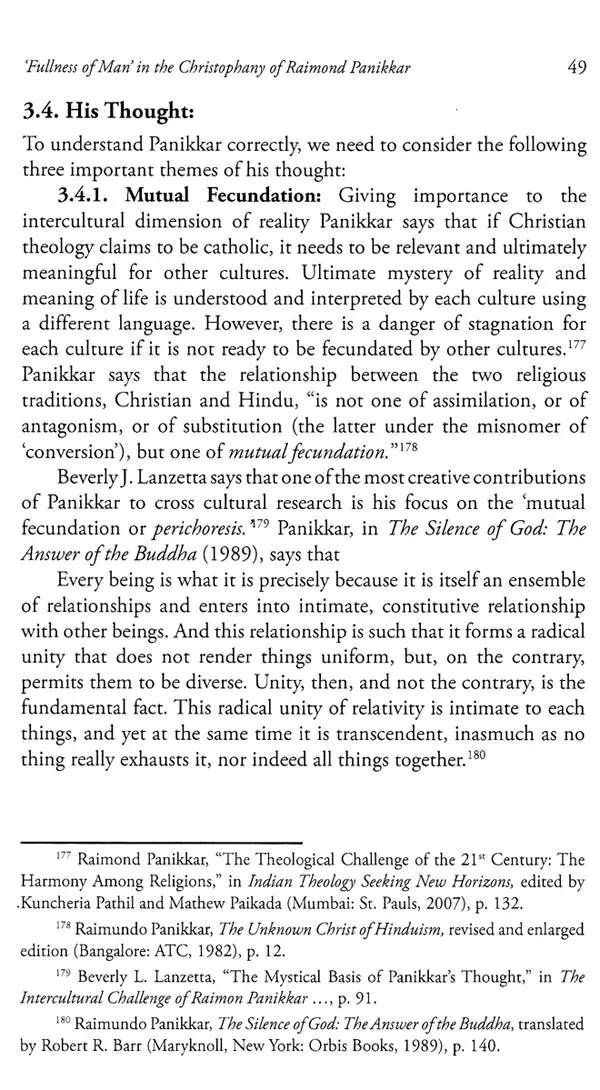
Imago Christi, A Horizon of Human Becoming - Christology Engaged In Cross-Cultural Theological Anthropology
Book Specification
| Item Code: | UBA219 |
| Author: | Johny C. Lalhmingmawia |
| Publisher: | Christian World Imprints, Delhi |
| Language: | English |
| Edition: | 2018 |
| ISBN: | 9789351482468 |
| Pages: | 96 |
| Cover: | HARDCOVER |
| Other Details | 9.00 X 6.00 inch |
| Weight | 280 gm |
Book Description
As Christian theology envisions imago Christi to be the horizon of human becoming, a Christian anthropology needs to be grounded in Christology. This book argues that Christology is pivotal for an intercultural reading of the human and divine relationship. Bringing up to speed the insights from Friedrich Schleiermacher's understanding of the "Perfection and Blessedness" and Raimond Panikkar's understanding of the "Fullness of Man", the argument envisions a theological anthropology consonant with contemporary cross- cultural issues.
This book is an attempt to pursue the understanding of humanity, in the conceptual level, grounded in the Christian understanding of Christ. Selecting Schleiermacher and Panikkar, is an intention to engage in a cross-cultural interaction with a concern to bring out a better understanding of humanity for our time.
Johny C. Lalhmingmawia is an Assistant Professor of systematic theology. After completing his Bachelor of Arts (BA), he studied the Bachelor of Divinity (BD), in the Academy of Integrated Christian Studies, affiliated to the Senate of Serampore College, University. In 2013, he finished Master of Theology (MTh) in the department of Christian Theology from United Theological College, Bangalore. Presently, he is teaching at the Academy of Integrated Christian Studies (AICS), Aizawl. He is married to Lalhmingliani Fanai, and are blessed with a son named Meshach.
In Imago Christi, A Horizon of Human Becoming, Johny C. Lalhmingmawia flips the imago Dei-inflected understandings of humanity to explore imago Christi as an analytical frame for theological anthropology. Wading through a wide spectrum of theological resources, Johny's exploration hones in on focused readings of Friedrich Schleiermacher and Raimundo Panikkar both for the intricacies of their ideas and for the intercultural variety they represent. It would benefit the reader to pay close attention to Johny's prose as he meticulously builds his case for the Christological foundations of theological anthropology. Such an exploration is neither the first nor the last of its kind. However, Johny lays down a template robust enough that any further development will have to reckon with the argumentation in Imago Christi.
As Christian theology envisions Imago Christi to be the horizon of human becoming, a Christian anthropology needs to be grounded in Christology. This book argues that Christology is pivotal for an intercultural reading of the human and divine relationship. Bringing up to speed the insights from Friedrich Schleiermacher's understanding of "Perfection and Blessedness and Raimond Panikkar's understanding of the "Fullness of Man," the argument envisions a theological anthropology consonant with contemporary cross-cultural issues.
Schleiermacher explains that Jesus Christ is ordained to be the person through whom the whole human race is to be completed and perfected.' Having a living fellowship with the Redeemer is having fellowship with God, which is to share the perfection and blessedness. of Christ.' In Schleiermacher's understanding, 'perfection' is similar to the completion of creation. Christ is the Second Adam who is the beginner and originator of perfect human life. Christ is like other human beings, descended from the first Adam, who has absolutely potent God-consciousness. Though Christ does not belong to the former order, but placed in the historical order and stands under the law of historical development in His whole activity which is brought to perfection through gradual expansion, from the point at which He appears. Panikkar talks about the 'Fullness of Man' in his discussion on the Christophany that "In Jesus Christ the finite and the infinite meet, the human and the divine are joined. In him the material and the spiritual are one, and also the male and the female, high and low, heaven and earth, the historical and the transhistorical, time and eternity." Panikkar's Christophany intends to offer an image of Christ that all people are capable of believing in and to offer the same experience to all those who nourish an interest in the person, Jesus.
Theological anthropology is a study of the human person in relation to a divine being. Christian theology addresses human being as created in the Image of God and Christ as the true human being. this book will locate a cross-cultural theological anthropology at the intersection of Friedrich Schleiermacher's idea of "Perfection and Blessedness" and Raimond Panikkar's musings on the "Fulness of Man."
